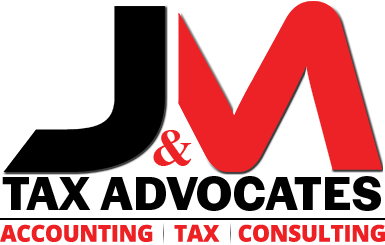Beneficial Ownership Information Reporting
Confused about the new beneficial ownership information report requirements? Let J&M Tax be your guiding star. Ace federal compliance effortlessly – we're with you every step. Submit with confidence, and never miss a deadline with our automated alerts. Act now—don't miss the March 21, 2025, mandate!
Ready to File Your BOI Report?
The FinCEN's final rule under the Corporate Transparency Act from September 2022 mandates Corporations and LLCs to report beneficial ownership to safeguard against illegal activities. Companies predating January 1, 2024, have until January 13, 2025, for initial filing, while new entities from that day to December 23, 2024, get an extended 21-day period. Businesses impacted by disasters may have later deadlines, and those established on or after January 1, 2025, have 30 days post-notification for filing. Exceptionally, parties involved in "National Small Business United v. Yellen, No. 5:22-cv-01448" are currently exempt from reporting.

FILE YOUR BOIR
STILL NOT SURE?
Frequently Asked Questions
We understand lorem ipsum dolor sit amet, consectetur adipisicing elit.
Q: When is the initial beneficial owner information report required to be filed with FinCEN for companies existing prior to January 1st, 2024?
Companies that existed before January 1, 2024, are required to file their initial beneficial ownership information report (BOIR) by January 1, 2025.
Q: When is the initial beneficial owner information report required to be filed with FinCEN for entities created on or after January 1, 2024, and before January 1, 2025?
Entities created or registered on or after January 1, 2024, and before January 1, 2025, must file their initial beneficial ownership information report (BOIR) within 90 calendar days after receiving actual or public notice that their creation or registration is effective. This ensures that newly established companies promptly report their beneficial ownership information.
Q: When is the initial beneficial owner information report required to be filed with FinCEN for entities created on or after January 1, 2025?
Entities created or registered on or after January 1, 2025, must file their initial beneficial ownership information report (BOIR) within 30 calendar days after receiving actual or public notice that their creation or registration is effective. This shorter deadline is intended to ensure timely reporting of beneficial ownership information for newly formed companies.
Q: What is a beneficial owner?
A beneficial owner of a business is an individual who directly or indirectly controls a company or owns at least 25% of its interests. Beneficial owners must be natural persons—i.e., individuals. Natural persons include people with decision-making power, such as major shareholders or senior officers. Not all individuals connected to a company are considered beneficial owners. For instance, employees, consultants, or third-party service providers who perform work for the company but do not have control or ownership are not classified as beneficial owners. Furthermore, individuals with minimal ownership percentages or passive roles without decision-making power typically do not qualify. This distinction helps clarify the reporting process, ensuring that actual people who have substantial control over the company are identified. Entities like trusts, corporations, or other legal structures cannot be considered beneficial owners. In some cases, however, if an entity holds ownership interests in the company, the entity’s information may be reported instead of the individual’s, depending on specific circumstances outlined by FinCEN.
Q: Which types of organizations are considered reporting companies?
Reporting companies include domestic corporations, limited liability companies (LLCs), and other legal entities that are formed by filing a document with a state or similar office in the U.S. Foreign entities registered to do business in the U.S. must also report, unless they qualify for an exemption.
Q: What is an example of a beneficial owner with substantial control?
An individual with substantial control over a company may be a senior officer (e.g., CEO, CFO), someone with the authority to appoint or remove directors, or an important decision-maker who directs key aspects of the company’s operations. For instance, a company president who controls major business decisions would be considered a beneficial owner with substantial control.
Q: Who must file a BOIR?
A beneficial ownership information report (BOIR) must be filed by the company itself or an authorized individual, such as an employee, owner, or third-party service provider. Companies are responsible for ensuring the information is submitted electronically through FinCEN’s reporting system.
Q: What types of companies are exempt from filing a BOIR?
Certain entities are exempt from filing a beneficial ownership information report, including publicly traded companies, government entities, banks, insurance companies, credit unions, large operating companies, and certain nonprofits. There are 23 types of exempt entities in total under the Corporate Transparency Act:
Securities reporting issuers (publicly traded companies)
Governmental authorities
Banks
Credit unions
Depository institution-holding companies
Money services businesses
Brokers or dealers in securities
Securities exchanges or clearing agencies
Other entities registered under the Exchange Act
Investment companies or investment advisers
Venture capital fund advisers
Insurance companies
State-licensed insurance producers
Commodity Exchange Act registered entities
Accounting firms
Public utilities
Financial market utilities
Pooled investment vehicles
Tax-exempt entities
Entities assisting tax-exempt entities
Large operating companies
Subsidiaries of exempt entities
Inactive entities
Q: What information is required for beneficial ownership?
The required information includes the beneficial owner’s full name, date of birth, residential address, and a unique identification number from an acceptable document such as a passport or driver’s license. A copy of the identification document must also be submitted.
Copyrights 2025 | J&M Tax™ | Terms & Conditions
